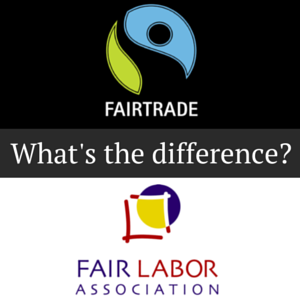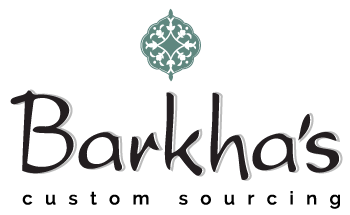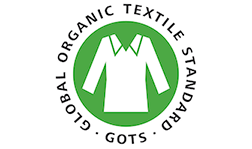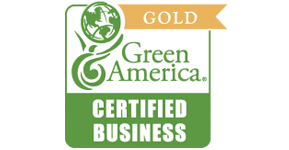 Fair Trade and fair labor. It seems that these two terms get mentioned often when it comes to the manufacturing and purchasing of products. But do you know what each term really means? Were you aware that in spite of the fact that they both provide fair wages, safe and healthy work environments, and a workforce free from forced and child labor, there’s actually a big difference between the two? If you answered “no” to one or both of these questions, no worries! That’s what this blog is for… to keep you informed about topics that can make a huge impact upon our planet and the people living on it.
Fair Trade and fair labor. It seems that these two terms get mentioned often when it comes to the manufacturing and purchasing of products. But do you know what each term really means? Were you aware that in spite of the fact that they both provide fair wages, safe and healthy work environments, and a workforce free from forced and child labor, there’s actually a big difference between the two? If you answered “no” to one or both of these questions, no worries! That’s what this blog is for… to keep you informed about topics that can make a huge impact upon our planet and the people living on it.
So let’s start with this: The most significant difference between Fair Trade certified and fair labor is that Fair Trade includes building direct, long-term and empowering relationships with economically and socially marginalized producers who live in developing countries. Fair Trade also includes supporting community development and cultural diversity. Fair labor standards don’t necessarily include any of these things. Now we’ll take a closer look at both Fair Trade and fair labor, and tell you some of the specifics about each.
Fair Trade
We’re sure you’ve seen the sticker with the Fair Trade logo on it when shopping for products at your local grocery or department stores. The principle of Fair Trade looks to end putting profits above people or the environment. A Fair Trade product is one that was made under a set of standards put in place to stop poverty, sweatshops and the destruction of the planet. Once certified as Fair Trade, a product can then be marked as such for consumers.
Fair Trade allows workers and farmers in developing countries throughout Latin America, Africa and Asia to benefit from better prices and terms of trade. It also gives them a chance to develop business skills in order to grow and compete globally. Several principles associated with Fair Trade must be followed in order for a product to become certified. These include: fair prices and credit, fair labor conditions (prohibiting forced or child labor), direct trade, democratic and transparent organizations, community development and environmental sustainability. In addition, there are specific environmental standards involved. When a Fair Trade product is made:
- Water resources and natural vegetation areas must be protected.
- Agricultural diversification, erosion control, and no slash and burn must be promoted.
- The use of pesticides and fertilizers must be restricted.
- The use of genetically modified organisms (GMOs) must be banned.
- Proper management of waste, water and energy is required.
While we’re speaking about Fair Trade, we also want to address a particular question that we hear a lot: “Does Fair Trade mean organic?” The answer is “no”. Although Fair Trade promotes organic farming and offers farmers more money for organic products, Fair Trade does not mean organic.
Fair Labor
Now let’s take a look at fair labor. Whether the product you enjoy most is coffee or clothing, chances are it’s made by workers in a factory or farm somewhere. These men and women grow, harvest, sew and produce goods that we use every day. However, the next time you make a call on your cell phone or slip your feet into your favorite pair of running shoes, give this some thought: Many of the workers who had a hand in creating your favorite products work in deplorable conditions.
“Why doesn’t someone protect them?” you ask. Someone tries. This group is called the Fair Labor Association (FLA). Since 1999, they’ve been fighting for workers’ rights, and helping to ensure that goods are produced fairly and ethically. The FLA has tasked universities, civil society organizations and companies with discovering sustainable solutions to labor issues across the globe.
Companies affiliated with the FLA must follow a Code of Conduct, which needs to be implemented across all supply chains. This Code sets the standard for the ethical way workers must be treated, the healthy conditions they need to work in and the fair wages they should earn. Furthermore, the Code has specific rules about employment relationships, discrimination, harassment and abuse, forced labor, child labor, collective bargaining, and hours of work. The FLA ensures that member companies comply with the Code by completing external assessments of each one. When labor issues arise, the FLA also works to find solutions.
Be Fair: Help People, Help The Planet
In the absence of a unified, universally accepted strategy for monitoring and labeling “sweat-free” goods, some companies have taken steps toward greater accountability to consumers. Many are voluntarily purchasing the services of independent monitors and certifiers. GOTS certification ensures that the minimum social criteria based on the key norms of the International Labour Organisation (ILO) must be met by all processors and manufacturers. They must have a social compliance management with defined elements in place to ensure that the social criteria can be met.
Now that you know a bit more about fair labor and Fair Trade, keep what you learned in mind the next time you shop. What you purchase today can make all the difference in someone else’s tomorrow.





No comments yet.